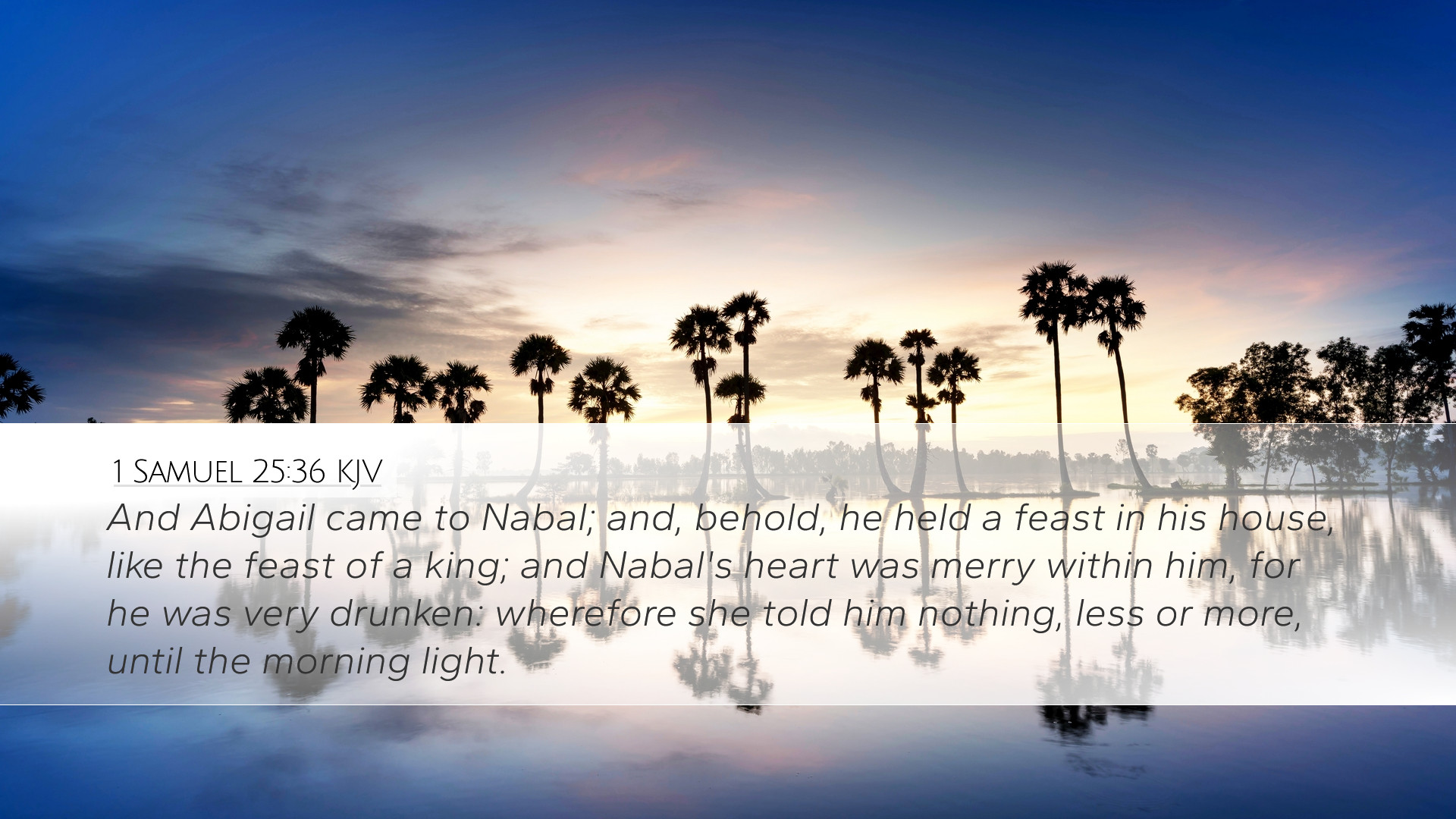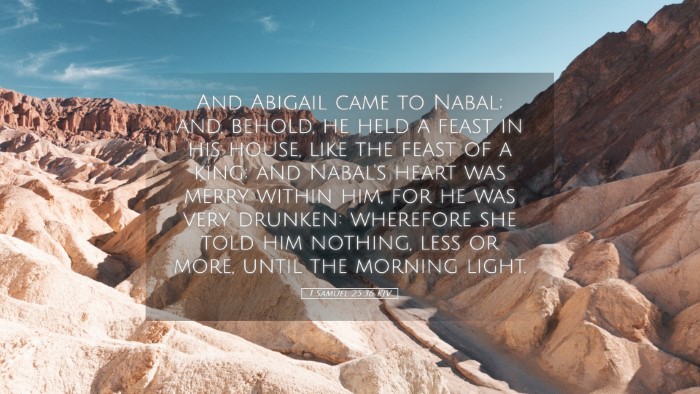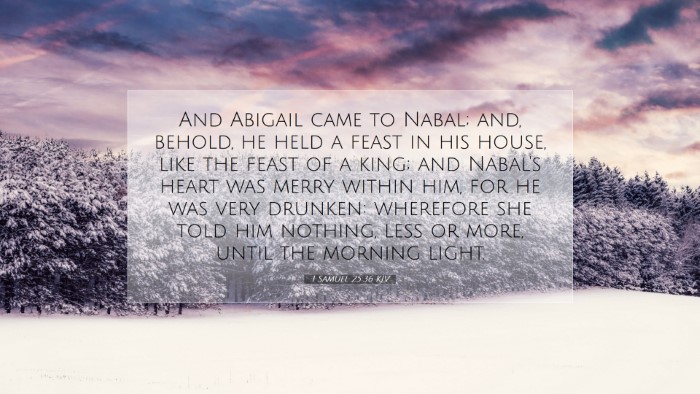Commentary on 1 Samuel 25:36
Verse: "And Abigail came to Nabal; and, behold, he held a feast in his house, like the feast of a king. And Nabal’s heart was merry within him, for he was very drunken: wherefore she told him nothing, less or more, until the morning light." (1 Samuel 25:36)
Contextual Analysis
This verse comes at a pivotal moment in the narrative of Abigail and Nabal. Abigail, Nabal's wife, has just returned home after a tense encounter with David, one in which she hastily gathered provisions to avert David's wrath. The passage highlights the stark contrast between Nabal's revelry and Abigail's prudent demeanor.
Commentary Insights
Matthew Henry's Commentary
Matthew Henry notes that Abigail's arrival at home coincided with a heavy feast hosted by Nabal, indicating that he was celebrating his wealth and successes while oblivious to the grave situation he had put himself in with David. Henry articulates that the nature of Nabal’s feasting, akin to that of a king, reflects his pride and lack of awareness.
Abigail rightly chose not to disclose the gravity of the situation to Nabal while he was intoxicated, illustrating her wisdom and understanding of her husband's foolishness. She knew that alcohol can cloud judgment and lead to rash responses, emphasizing the importance of timing in communication.
Albert Barnes' Commentary
Albert Barnes points out that Nabal’s drunkenness serves as a metaphor for spiritual insobriety. He describes how Nabal, in his drunken state, was completely unaware of the real threat approaching him from David and his men. This intoxication is likened to the moral and spiritual blindness that can afflict those who indulge excessively so that they are oblivious to the consequences of their actions.
Barnes emphasizes Abigail’s wisdom in withholding information from Nabal until he is sober. This action underscores her role as a peacemaker and a stabilizing force in their household, contrasting sharply with Nabal’s recklessness.
Adam Clarke's Commentary
Adam Clarke elaborates on the character of Nabal, describing him as "a churlish and ill-natured man." Clarke asserts that the manner of Nabal’s feast reveals his inability to recognize serious matters, as he indulges in gluttony while oblivious to the hostility brewing with David. Clarke also highlights the potential dual meanings of Nabal’s revelry—it not only marks his disdain for others' needs, including David's but also serves as a warning of the consequences that can come when one is self-indulgent and dismissive of their responsibilities.
Abigail's choice to wait until morning to reveal anything to Nabal exemplifies her strategic thinking and capacity for restraint, indicative of a woman poised for leadership amid turmoil.
Theological Implications
The events captured in this verse provoke deep theological reflection on the nature of human folly and wisdom. The contrast between Nabal and Abigail raises questions about morality, discernment, and the impact of character on decision-making. The feast serves not only as a metaphor for Nabal’s lifestyle and priorities but also as an intercession point for considering how earthly pleasures can distract one from fidelity to responsibilities, especially in leadership roles.
Lessons for Modern Application
- Importance of Timing: Abigail's decision to wait until the morning emphasizes the importance of timing in difficult conversations.
- Characteristics of Wisdom: Abigail embodies wisdom in a difficult marriage and demonstrates the significance of making wise decisions under pressure.
- Consequences of Indulgence: Nabal’s state serves as a caution against the dangers of indulgence and moral complacency.
- Spiritual Awareness: The passage invites reflection on spiritual vigilance and the necessity of being aware of imminent threats to one's well-being and community.
Conclusion
This verse encapsulates a profound moment not only in the lives of Abigail and Nabal but also serves as a broader lesson about wisdom, folly, and the looming dangers of ignorance and careless living. As pastors, students, and theologians reflect upon this text, they are invited to consider the dynamics of relationships, the effects of poor choices, and the importance of having wise counsel in times of trial.


